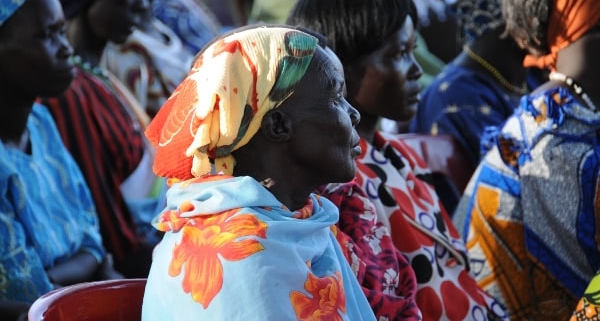With the next general elections set to take place in December 2024, this Review aims to tackle crucial questions around the delineation of new geographical constituencies in line with the recently passed South Sudan’s National Elections Act, 2023. The Review analyses the constituency threshold formula proposed by in the Act and uses the suggested calculation guidelines to construct the possible scenarios for the distribution of geographical constituencies, as well as considering the challenges that come…
repository
CSRF Research Repository
The CSRF Research Repository aims to support greater contextual knowledge for policy makers, programme managers, and implementers by providing a searchable repository of research, analysis, and resources, and providing periodic updates on new research and analysis.
This report explores the practice of bride prices in South Sudan and its related social, economic, and political implications on gender relations and violent conflict. The report suggests that the bride price appears to contribute to gender-based violence and violent conflict in the country. The report also provides insights on how stakeholders can tackle these challenges linked to the practice of bridge price. Read more here
Using the case study of three countries, including South Sudan, this paper explores the extent to which a bottom-up approach has been integrated in the Humanitarian-Development-Peace (HDP) nexus process, particularly from the perspective of humanitarian actors. Specifically, the paper finds that this integration has been challenging mainly due to power imbalance intrinsic to the political positioning of international humanitarian actors. Finally, the paper provides some suggestion how to effectively implement HDP using a bottom-up approach….
This report discusses community engagement with armed actors, and identifies factors, actions, and actors can influence such engagement. The report finds that community engagement with armed actors presents both opportunities and challenges. Finally, the report provides suggestions on how national, and international peace, protection and humanitarian actors can effectively engage with armed actors through enhancing complementarity between humanitarian, especially protection, and peacebuilding actors. Read more here
This article provides a multidimensional report of the persistent farmers-herders conflict in South Sudan, delving into its historical background, root causes, far-reaching consequences, potential prevention/management strategies and recommendations for actors and policymakers in South Sudan.
This SIPRI Policy Report synthesizes the data on small arms and light weapons (SALW) diversion from the United Nations Panel of Experts reports on the five UN arms embargoes in place in sub-Saharan Africa in 2022—on the Central African Republic, the Democratic Republic of the Congo, Somalia, South Sudan and Sudan (Darfur region). The report provides a typology on the sources of illicit SALW in the states and regions under embargo and discusses the challenges…
Focusing on peace in South Sudan, this meta-analysis provides an overview of the literature available on formal peace agreements – their limitation and challenges, local level conflict prevention and resolution mechanisms, and disarmament, demobilisation, and reintegration (DDR) processes in South Sudan. Specifically, it explores the structural limitation and implementation challenges of the formal peace agreements and their legacy, as well as looking particularly at the DDR processes envisaged as parts of these agreements. Finally, it…
This report focuses on the use of biometric registration technology in the delivery of humanitarian aid in South Sudan. The report identifies conflict sensitivity risks and opportunities associated with the use of biometric technology, especially in conflict-affected and remote areas. Finally, the report outlines some recommendations on how to use biometric technology in a more effective, efficient and conflict sensitive manner.
In this blog, Lona Elia Morgan and Livia Oliver discuss the concept of gender and conflicting perceptions of the concept among South Sudanese communities. Based on their extensive gender work, they explore different perceptions around gender and the related impact on conflict dynamics, as well as on aid programming, providing insights on how aid actors can change these perceptions and mitigate risks on aid interventions. In South Sudan, gender sensitivity is increasingly being integrated…
This Anthology was developed by the Rift Valley Institute, and it includes their research produced over the period of 2001 and 2021. As such, the Anthology spans a vast array of topics, including elections, epidemics, mobilisation and resistance, war, etc. Read more here

Some Infos
Lorem ipsum dolor sit amet, consectetuer adipiscing elit. Aenean commodo ligula eget dolor.
Pages
- About Our County Profiles
- Blog
- Case Studies Grid
- Central Equatoria
- Conflict Sensitivity Resource Facility South Sudan
- Contact Us
- Contribute a Repository Article
- County Profile HTML links
- County Profiles
- COVID-19 HUB
- Covid-19 information page
- CSRF About Us
- CSRF Helpdesk
- CSRF Helpdesk Form
- CSRF Login
- Dashboard
- Deliverables
- Demo
- Events
- Forgot password
- Guides, Tools and Checklists
- Helpdesk
- Home
- Latest
- Looker Studio
- Subscribe

